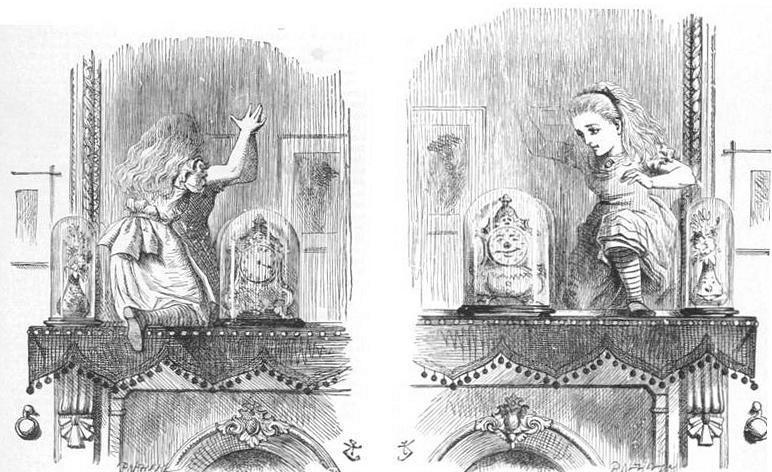Reflective practice in work-based learning
Curiouser and curiouser …what can you see through the looking glass?
If film producer Tim Burton has been disappointed by the mixed reaction to Alice through the Looking Glass, his sequel to 2010 blockbuster Alice in Wonderland, perhaps he should consider using reflective practice.
Reflective practice means thinking about (in other words reflecting on) what you do. This might sound simple, but there is a world of difference between thinking briefly about an experience before moving quickly on, or using reflective practice as a tool to learn from your experience and apply what you have learned to improve how you deal with similar situations in future.
According to author and lecturer Jenny Moon: “Reflective practice is an active, dynamic action-based and ethical set of skills, placed in real time and dealing with real, complex and difficult situations.”*
For a work-based learner, reflective practice is particularly helpful, as it provides the link between academic theory and practical application. Uni@Work tutors use the Gibbs reflective cycle (Gibbs 1998), in which learners are asked to think about a particular work situation and ask themselves:
- What happened?
- What did you think and feel?
- What was good and/or bad?
- What sense did you make of the experience?
- What else could you have done?
- How would you deal with this if it happened again?
This model is used in writing assignments which are based on the learner’s real life work role, and in one-to-one coaching sessions, when the insights achieved are used to help create goals. Reflective practice also features in Action Learning Sets, where a small group of learners led by the tutor considers the work challenges of each member, asking supportive but incisive questions to gain a deeper understanding, challenge assumptions and explore the way forward.
For Uni@Work tutor, Michael Costello, reflective practice is something in which all learners need to engage. “It consolidates knowledge gained through experience and is a structured route to continuous learning. Uni@Work learners are asked to seek feedback in various ways – such as questionnaires – throughout the programme.”
And of course learners have the opportunity to give their own feedback too. Here are some comments from members of the Management and Leadership degree programme in answer to the question “What have you liked most about the programme so far?”
“The interaction with other group members, being involved in some strategic thinking and having the opportunity to engage with SET members.”
“The in-depth learning and reflection on who we really are and how that impacts on our ability to lead.”
“Working with other middle managers in the cohort to offer joint solutions to issues that we all seem to have. Also it was great working with non-operational members of staff to obtain their perspective and experiences.”
“Discussion sessions, Action Learning Sets, one -to-ones, critical thinking. How we as a group have bonded and become a critical think tank.”
Have you looked in the mirror recently?
Oh, and Mr. Burton… if you need someone qualified to help you reflect on Alice Through the Looking Glass… Michael Costello is available!
*Reflection in Learning and Professional Development: Theory and Practice, Kogan Page, London
